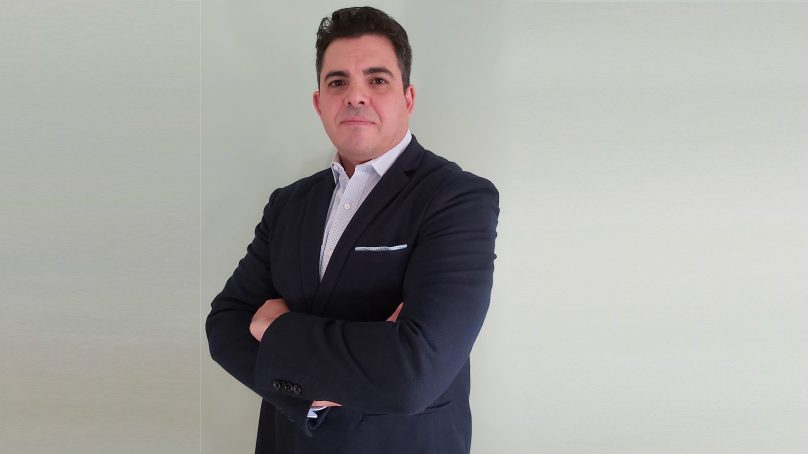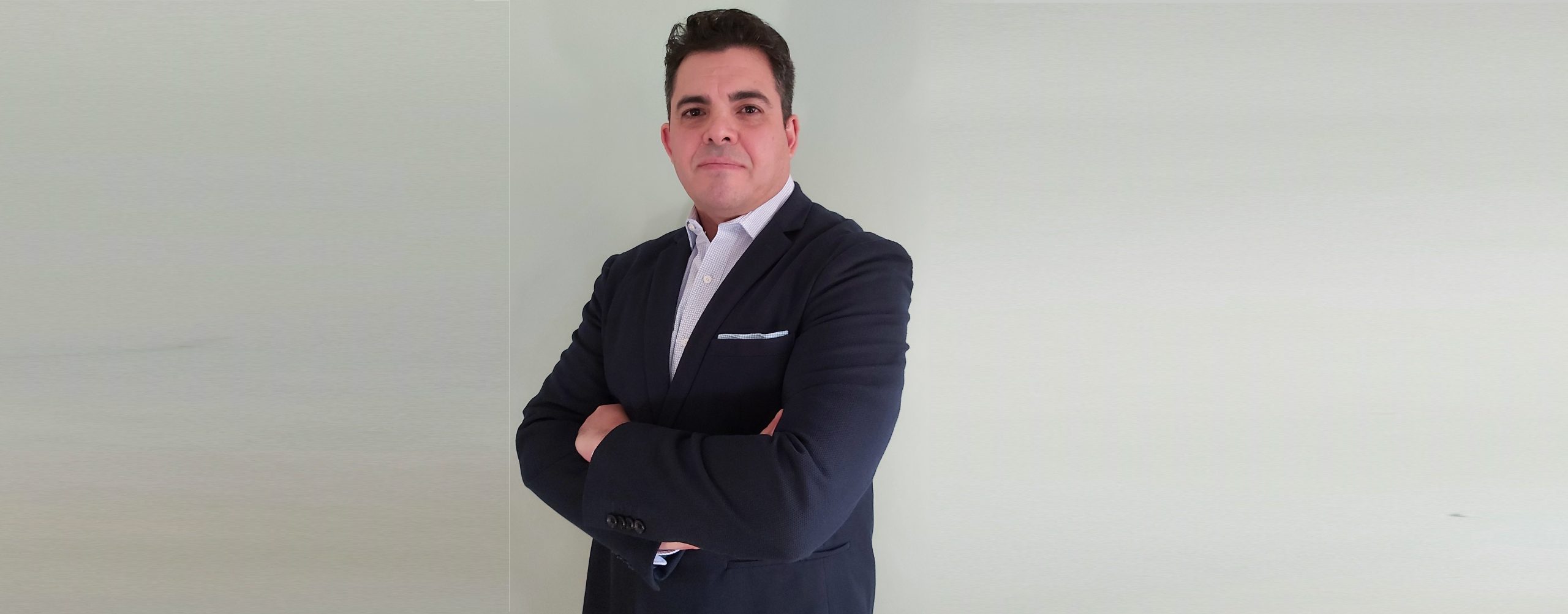As commercial manager for Furukawa Electric in EMEA, Diego Martin is an expert in the telecommunications market. Here, he sheds light on how Furukawa is helping hotels become digitally advanced to meet the needs of modern travelers.
How does Furukawa’s technology enhance the guest experience in hotels?
Experiences are everything. Nowadays, one of the primary expectations of hotel guests is uninterrupted high connectivity and access to various services, facilities and comforts, necessitating technologized hotel infrastructure. Therefore, having high-performance communication networks is critical for positioning oneself in the industry.
By incorporating this type of technology in hotels, guests can benefit from a five-star experience tailored to their preferences, ensuring personalized services and data security. Furthermore, it positively impacts the marketing strategy, enhances customer satisfaction and helps establish a strong brand preference.
How does Furukawa’s solution application adapt to the needs and requirements of different hotels?
Furukawa offers the hotel sector an innovative solution that integrates various services into a unified communication system. This integration optimizes the management and physical spaces of installations while also contributing to environmental conservation and demonstrating substantial cost savings during installation. The interoperability platforms are developed with passive fiber optic solutions, commonly known as PON LAN networks. These networks enable the seamless integration of voice, data, video and security services, supporting both IP and analog solutions through fiber optics. This integration extends to all the services provided in the hotel rooms and public areas, significantly enhancing attention and service processes that were previously challenging to achieve.
The Laserway solution by Furukawa is particularly advantageous, as it substantially reduces infrastructure investments (CAPEX) and operational costs (OPEX), making it an excellent choice to address the connectivity needs of organizations. Many prominent hotel chains have chosen Furukawa as their preferred supplier for optical or copper networks.
What are the primary benefits that hotels can expect from implementing your technology?
By integrating technology into their operations, hotels create the conditions to enhance their revenue and reduce expenses. This trend is on the rise as it enables increased levels of personalization, ensures easier access to information and facilitates data-driven business decision making.
Efficient resource management plays a crucial role in achieving these goals. Simultaneously, it allows for the delivery of an optimized experience to guests through the absolute customization of services.
In which hotels have Furukawa’s solutions been successfully implemented and how have they impacted guest experiences and business outcomes?
Some of the most noteworthy hotels that have successfully implemented Furukawa’s solutions include Staybridge Suites and the Intercontinental Hotel in Mexico, Rio Perdido in Costa Rica, Tayayá Aquaparque Hotel & Resort and Grande Hotel SENAC in Brazil, Hotel Bidasoa in Chile, Hotel Punta Rasa in Cuba, Hotel Las Islas – Aviatur in Colombia, Villa Hotels in Madivas, Accor Raffles and Aston Rede Archipelago in Indonesia, among others. These hotels have been able to provide their customers with an exceptional experience by leveraging the cutting-edge Laserway solution.
How has the digital transformation of hotels evolved in recent years and what is the main trend that you believe will dominate the future?
To achieve the digital transformation of hotels, robust and integrated connectivity and data infrastructures are essential, ensuring high availability, reliability and future proofing to provide customers with the best experience.
An excellent example of such a solution is Laserway, which enables 100 percent fiber optics to be deployed within an internal environment under the concept of LAN (Local Area Network). This technology set generates substantial savings, including up to 70 percent in cables, 35 percent in racks, 80 percent in plastic, 70 percent in space, 70 percent in energy and 95 percent in network ports. By adopting Laserway, hotels can embrace sustainability and environmentally friendly practices, paving the way toward becoming smart hotels.
Laserway’s passive optical elements ensure continuous 24/7 connectivity, as data is transferred using light over long distances, effectively avoiding potential electromagnetic interference.
We strongly recommend implementing telecommunications network infrastructures specifically tailored for smart hotels. This investment promises significant returns, offering benefits such as improved connection quality, enhanced customer experiences, cost reductions and sustainability, among other things, ultimately contributing to the success of the hotel business.
What is the role of big data in the hotel industry and how Furukawa leverages it to enhance customer satisfaction and offer a personalized service?
Hotels collect, aggregate and analyze relevant information generated by their customers, enabling them to understand their preferences and requirements better. Big data plays a crucial role in this process by blending the hotel’s existing data with insights derived from customer profiles on social networks. The primary objective is to personalize the service, enhance the marketing strategy and improve customer satisfaction, positioning the hotel at the forefront of the sector’s demands. By leveraging big data effectively, hotels can gain valuable insights that lead to enhanced guest experiences and a competitive edge in the industry.
What are the most highly demanded solutions in the hotel industry today and how does Furukawa’s technology align with these needs?
A future-poof network and interoperability of services in the hotel sector is considered essential for hotels embracing the ongoing digital transformation in the industry. Furukawa has identified the trends that guests expect to find in their chosen hotels:
- Excellent fiber optic connections:guests seek more than just state-of-the-art televisions; they desire tools that allow them to control room features like lighting, curtains and communication with the reception, all of which require a fast Wi-Fi connection. By utilizing optical networks, hotels can significantly enhance the value of their services, implement automation solutions, improve the guest experience and increase revenue for hotel owners.
- Future-proof networks: recognizing the significance of technology in all areas, the tourism sector is moving hand in hand with the development of 5G networks. Beyond faster content downloads, 5G will enable the implementation of technologies previously constrained by 4G, resulting in more effective connections between smart devices.
- Big data, in favor of guests: hotels gather, analyze and cross-refer relevant information from their customers to understand their preferences and needs. Big data plays a vital role in this process by combining existing hotel data with customer profiles from social networks. The main purpose is to personalize services, improve marketing strategies, enhance customer satisfaction and stay at the forefront of the sector’s demands.
- Artificial intelligence: artificial intelligence is gaining prominence in the tourism sector’s technological solutions. Chatbots and AI systems enable communication with customers, serving as new forms of interaction between establishments and guests. Some hotel chains have already introduced virtual assistants among their services, helping clients manage hotel services and personalizing their room ambiance.
- Mobile technology: mobile devices have become all-in-one tour guides, travel agencies, restaurant locators and maps for travelers. Hotels need to adapt their communication and services to these devices, synchronizing flight details, hotel reservations, preferences and plans into a single device, creating a more pleasant and seamless guest experience.
How does Furukawa envision the future of technology in the hotel sector?
Furukawa Solutions highlights the key differentiators between a standard hotel and a smart one. Among these factors, high connectivity and innovative technology play a pivotal role in enhancing customer satisfaction and fostering loyalty, starting from the moment the guest checks in.
The hotel sector, whether in tourism or business, faces intense competition, necessitating constant and sustainable efforts to stand out, deliver unique services, and increase customer attraction, satisfaction and loyalty. Adapting to changes, evolving with the market’s new expectations is vital to staying competitive over time.
In this context, technology becomes a crucial ally for the hotel industry, particularly in its transformation toward the smart world. Embracing advanced connectivity and innovative solutions not only sets hotels apart but also creates an environment where guests can experience seamless and enhanced services throughout their stay, fostering long-term customer loyalty and satisfaction.
![]() content.furukawalatam.com/hospitality-news-me-registration
content.furukawalatam.com/hospitality-news-me-registration
















